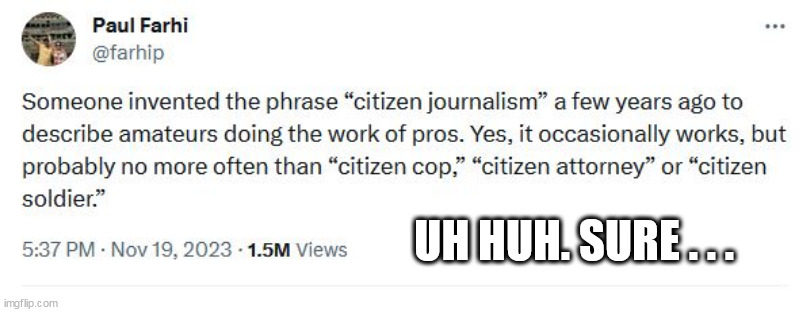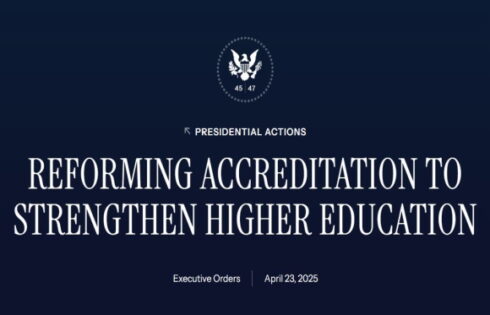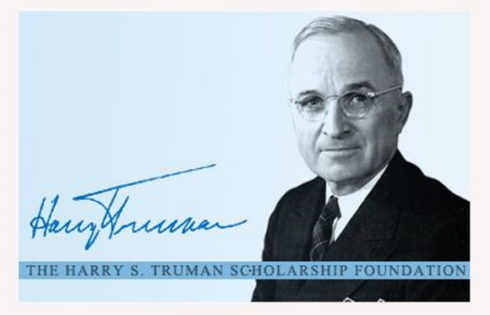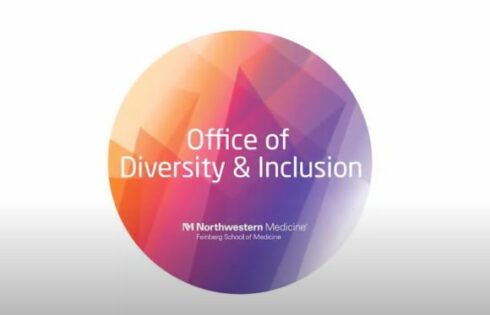
‘Expertise is … premised on the understanding that not all opinions are equally valid’
A pair of Arizona State University professors recently penned an op-ed in which they tell college administrators “Enough with the free-speech rhetoric!”
How come? Because such “concedes too much to right-wing agendas.”
Richard Amesbury (religious studies and philosophy) and Catherine O’Donnell (history) argue that “greater freedom of speech on campuses, however well-intentioned, risk undermining colleges’ central purpose, namely, the production of expert knowledge and understanding.”
“Expertise requires freedom of speech,” they say, “but it is the result of a process of winnowing and refinement that is premised on the understanding that not all opinions are equally valid.”
At the moment, a lot of knowledge, particularly (though not exclusively) in the humanities, while the product of rigorous and reliable disciplines, isn’t publicly perceived as authoritative. In many cases, experts enjoy no special public esteem.
No doubt much of this is deliberate, the result of political efforts to delegitimize certain disciplines, as is evident in the study of race and gender. But well-meaning administrators contribute to the problem when they portray the college — or the part of the college that includes the humanities — as a public sphere, speaker’s corner, or marketplace of ideas.
The Amesbury/O’Donnell (pictured) piece is lengthy and makes some good points, but it ultimately works hard to avoid the actual situation. (That, or like way too many progressives, the profs are isolated in an ideological bubble.)
After all, which right-wingers are complaining about not being to speak freely about topics such as “homeopathic medicine and astrology”?? (The profs actually mention these.)
Currently, many conservatives merely want to challenge the academic conventional wisdom on topics such as race and gender. Do critical race theory and gender theory “produce knowledge”? Are they really “the product of rigorous and reliable disciplines”?
Search the College Fix archives for “Ibram Kendi,” “Robin DiAngelo,” “Brittney Cooper” and “Glenn Singleton,” for starters. Is the work of these individuals the result of “rigorous and reliable” scholarship? Or is it popular because of politically correct credentialism?
MORE: The case against credentialism

Singleton, for example, when he spoke to my former school district 20 years ago, immediately ruled out certain topics of discussion when it came to racial achievement and discipline “gaps.” DiAngelo’s concept of “white fragility” violates the principle of falsifiability, a scientific fundamental.
And Cooper once posited that time (time!) is racist because, among other things, white people believe it is linear (which it is).
Again, this, not stuff like astrology, is what conservatives clamor about when it comes to campus (and K-12) free speech. But unfortunately what often happens when right-leaning speakers challenge the progressive conventional wisdom on these topics and others are protests, the shouting down invitees, complaints of “racism” and the phobia du jour … and even violence.
Not to mention having the federal Department of Justice look into you.
And sadly, the Kendi, et. al. nonsense is amplified by an ideologically similar media, politicians and other public officials. Have we already forgotten what “experts” told us about COVID-19? The “vaccine”? How January 6 was worse than everything but the Big Bang? How men can be women? How Israel is engaged in “genocide”?

And then there’s the next generation of adults coming out of the universities who are parroting this stuff.
The USA Today network of papers recently saw fit to give syndicated access to an (allegedly) conservative Albion College student in order to lecture rural rightists about how their (conservative) media “lies” to them — basically progressive stereotypes like “immigrants are invading this country, queer folk are pedophiles out to groom their kids and their children are being indoctrinated into believing that the U.S. and white people are inherently evil.”
The student tries hard to sound reasonable (“I’m pleading with [progressives] to stop writing off rural, red communities”), but the truth comes out eventually: “There are ways to deradicalize” middle-of-the-country conservatives (emphasis added).
Reasonable, non-dogmatic people know that immigration, transgenderism, critical race theory, climate change, etc. are absolutely and unequivocally legitimate topics of debate. Right-leaning speakers on these topics are entitled to forums on our college campuses. Period.
If you’re fearful or angry about this (as so many progressives have been over the years; again, check The Fix archives), maybe it’s because your own views are inherently weak.
MORE: Medical professor says only scientists like him can have political views
IMAGES: Shutterstock.com; Arizona State U.
Like The College Fix on Facebook / Follow us on Twitter







Please join the conversation about our stories on Facebook, Twitter, Instagram, Reddit, MeWe, Rumble, Gab, Minds and Gettr.